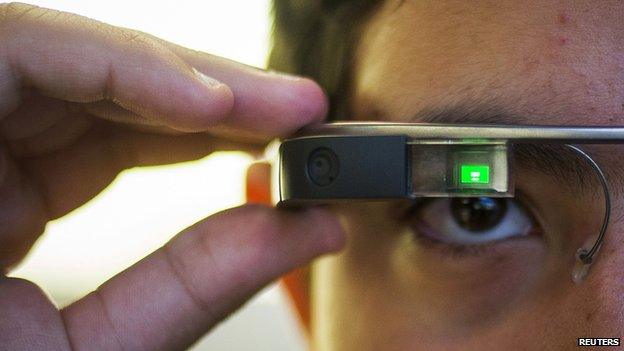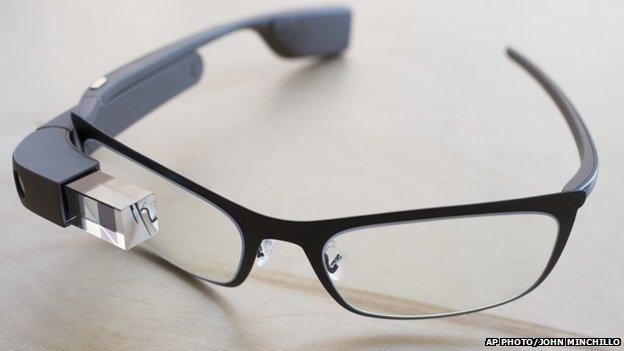Google Glass 'addict' wore device for 18 hours a day
- Published

It can get you thrown out of a cinema and hit with a driving fine - now it's claimed using Google Glass can be addictive.
Scientists have treated a man for "internet addiction disorder" said to be linked to overuse of the wearable specs.
The 31-year-old, who was also being treated for alcohol abuse, had apparently been using the device for 18 hours a day.
He showed signs of "frustration and irritability" when not using it, according to a study, external published in the journal Addictive Behaviours.
The study claims it is the first reported case of internet addiction disorder (IAD) linked to Google Glass.
The wearable device has a built in camera and microphone which can record photo, video and sound.
Newsbeat tried out Google Glass in 2013
IAD is not officially recognised as a clinical diagnosis, and psychiatrists are split on its existence.
But it is sometimes used as a way of identifying addictive behaviour relating to phones, computers and video games.
The man was taking part in a US Navy programme for alcohol misuse.
Doctors noted he had a history of "mood disorder" consistent with substance abuse, depression, anxiety and severe alcohol and tobacco use disorders.
Over the course of his 35-day treatment the report claims he became "extremely irritable and argumentative" once he was parted from the device.
He also seemed to mimic the movement used to operate Google Glass, when not wearing it.

Google has not commented on the report which claims excessive use of Google Glass is associated with involuntary movements and short-term memory problems.
"The patient exhibited a notable, nearly involuntary movement of the right hand up to his temple area and tapping it with his forefinger," the study claimed.
Doctors also said his symptoms reduced over time.
They noted he became less irritated and showed "improvements in his short-term memory and clarity of thought processes."
Google Glass went on sale in the UK in June, costing £1,000.
At this stage the device is aimed at tech developers rather than the likes of you and me.
Google has so far declined to comment.
Follow @BBCNewsbeat, external on Twitter and Radio1Newsbeat, external on YouTube